Two medical research institutes accused of conducting cruel and deadly forced smoking tests on animals
Two Australian research facilities have been accused of conducting “cruel” and deadly experiments which have led to the suffocation of more than 100 animals. WARNING: Graphic.
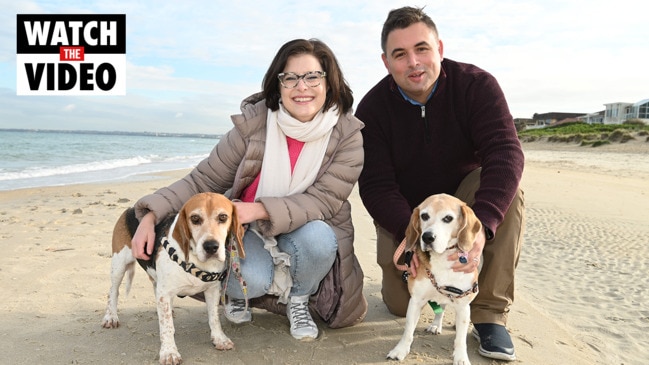
National
Don't miss out on the headlines from National. Followed categories will be added to My News.
Two Australian research facilities have been accused of conducting “cruel” and deadly experiments which have led to the suffocation of more than 100 animals.
A parliamentary inquiry has been given evidence the Centenary Institute, based at Sydney’s Royal Prince Alfred Hospital, and The University of Newcastle (UON) carried out forced smoking tests on animals.
The inquiry was told dozens of mice died of asphyxiation after being forced to smoke up to 12 cigarettes while physically restrained in a tube and attached to a “smoking tower” in the UON experiments.
Dr Christopher McCarthy, the Chair of the UON Animal Care and Ethics Committee revealed there had been a “failure of the machine” but it had since been fixed.
Animal Justice Party MLC Emma Hurst asked why the experiment was still being used at UON given the high welfare impact on the animals including that mice can suffocate if they tried to turn around in the tube or die from hypothermia if they wet themselves.
Dr McCarthy said there were no deaths recorded from turning and researchers had no started warming the mice before and after they are forced to smoke. He said it was approved by a consensus of the Animal Ethics Committee.
The NSW Parliamentary inquiry is hearing evidence into the use of primates and other animals in medical research.

Ms Paula Wallace, the founder of the Liberty Foundation which rehomes ex-laboratory animals told the inquiry research facilities should be asked “directly where they are getting their animals from”.
“In terms of research facilities procuring animals from websites like Gumtree, I think the onus would be on the unscrupulous people who are exploiting animals for profit on Gumtree,” she told the inquiry.
“The reality is that anyone can buy an animal from a website. Whether that is ethically acceptable or not – really that is up to the animal ethics committee to decide.”
A spokeswoman for Gumtree has said they are not aware of any complaints or reports of animals used for medical or scientific experiments.
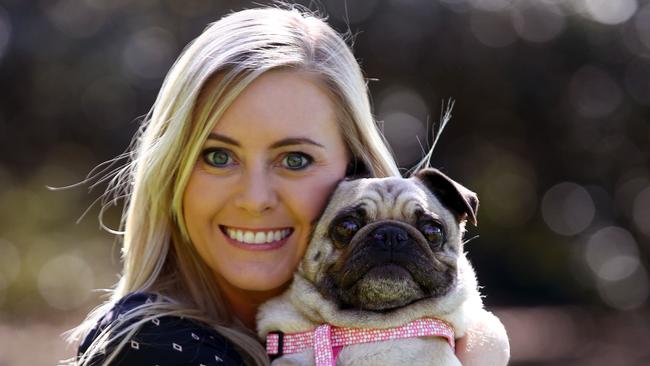
“We constantly endeavour to support responsible trading to protect animal welfare … we introduced a mandatory insertion fee within our pets category across all pets and animal listings to discourage casual animal trading taking advantage of the platform.” she said.
The total number of cats and dogs being used in the invasive, secret experiments has reached thousands every year around Australia, but the exact number is unknown because the ACT, SA, WA and NT do not publish reports breaking down animal use in research.
In NSW, almost 1000 dogs and 500 cats in 2020 were being kept and used in highly confidential animal experimentation.
In Victoria there were 2706 domestic dogs, 465 domestic cats and 436 feral cats used in highly confidential animal experimentation.
In Queensland, there were 1783 domestic dogs, 554 domestic cats and 782 feral/exotic cat used in highly confidential animal experimentation.
In Tasmania, there were 32 domestic cats, 9038 feral cats. and five domestic dogs used in highly confidential animal experimentation.
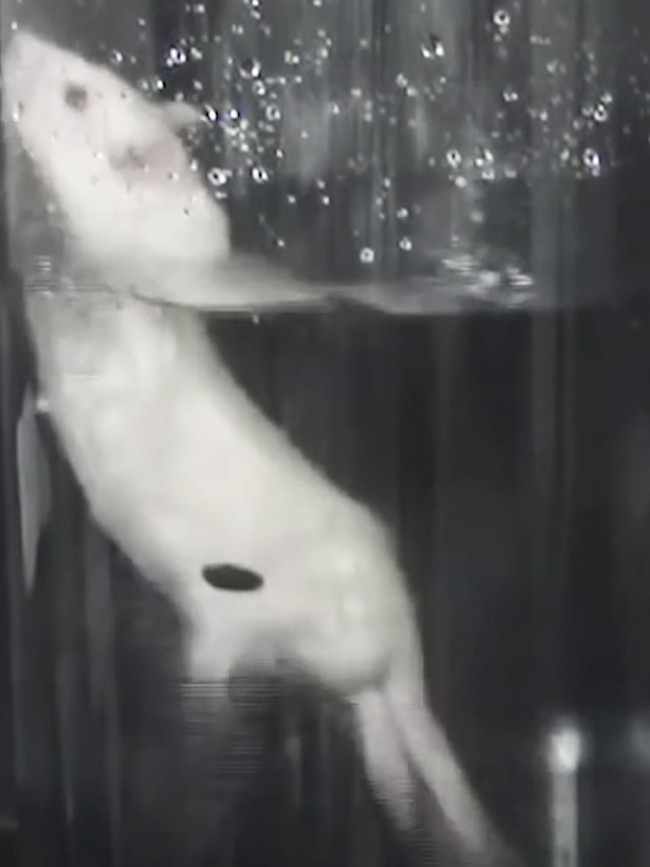
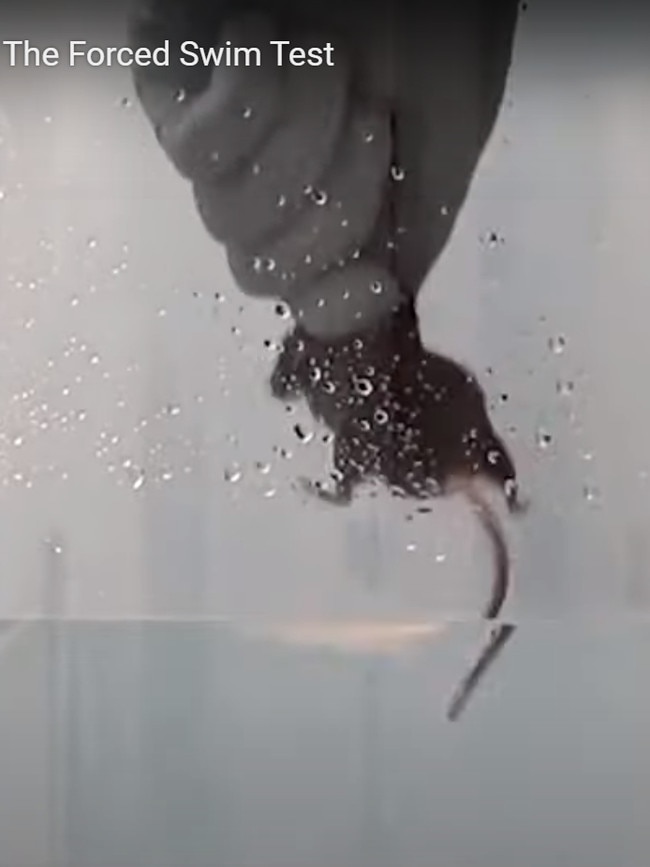
“The lack of transparency has some extreme consequences for animals being used for experimental purposes. It means that many animals will not have a chance to get out of experimentation facilities. They will be born into medical experimentation, and they will die there,” Ms Hurst said.
The NSW and ACT Branch Chair of the Australian Academy of Health and Medical Sciences Professor Anthony Cunningham has agreed at a parliamentary inquiry there should be transparent reporting of the use of animals and the research needs to be regulated at arm’s length.
“There has to be transparent reporting of research and, also, all researchers have to justify the number of animals that they use,” Professor Cunningham has said.
The revelations about the use of domestic animals come as investigations show a cruel and terrifying “swim test” which lets mice flounder in buckets of water until the point of drowning — to assess levels of depression — is still being conducted in several Australian states.
That is despite the test now being prohibited by some of the world’s biggest drug companies, including Johnson & Johnson, Bayer, GlaxoSmithKline, Roche, AstraZeneca, Pfizer, and Bristol Myers Squibb, and by prestigious universities including Kings College in London. The test is no longer allowed in South Australian universities.
In separate, barbaric experiments, animals are being forced — using restraints — to smoke cigarettes which often kills them or leaves them sick, injured, maimed and suffering debilitating nicotine withdrawals.
Australia has a dark history of clandestine experiments on animals and is one of the highest users of animals in research globally, according to a 2019 report.
There is no has no national reporting system in Australia for the use of animals in experiments — unlike Canada, the United Kingdom, the European Union, and New Zealand.
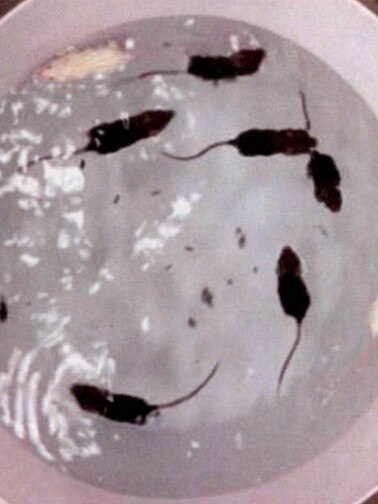
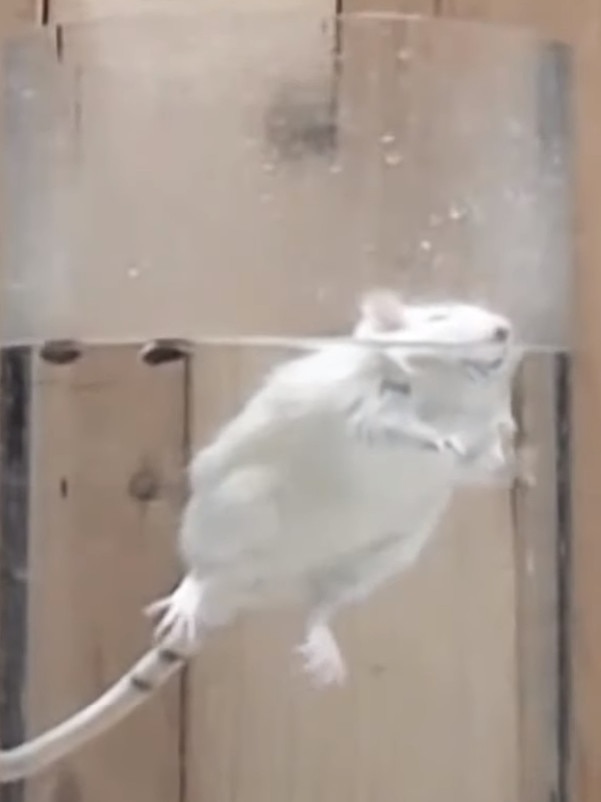
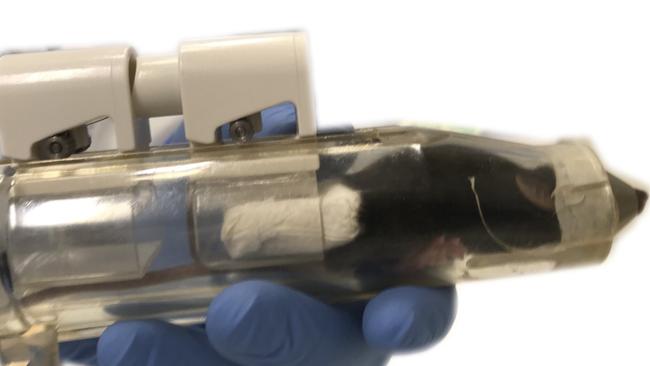
Animal rights groups are calling for a national independent oversight body and mandatory release age for animals subjected to experiments.
Experienced long term animal research carer Lisa Craig has given explosive evidence to a parliamentary inquiry about animals being mutilated with their toes and tails cut off and some not been given enough pain relief while being used for medical experiments.
She has also revealed the unnecessary mass killing of animals by researchers.
Humane Research Australia (HRA) has previously revealed horrendous experiments including healthy dogs which have undergone heart surgery experiments before being killed, while kittens have been intentionally deafened at just one day old to test cochlear ear implants.
Researchers used to source animals from council pounds for testing, until that avenue was blocked by regulations in some states, meaning many now go online.
HRA chief executive Rachel Smith said dogs have been used for toxicity testing, for terminal blood donations, to test dental implants and deep brain stimulation.
Ms Smith said a 2018 opinion poll commissioned by HRA revealed 70 per cent of those surveyed opposed the use of dogs in research.
“Not only is the use of dogs ethically objectionable … but it has also been shown to be ineffective,” Ms Smith said.
“In 2013, a groundbreaking scientific study showed the use of dogs in testing human drug safety is not scientifically justifiable.”
The shocking revelations come as a bill has been introduced to the NSW parliament to give animals the right to be released from laboratories and rehomed instead of being killed.





